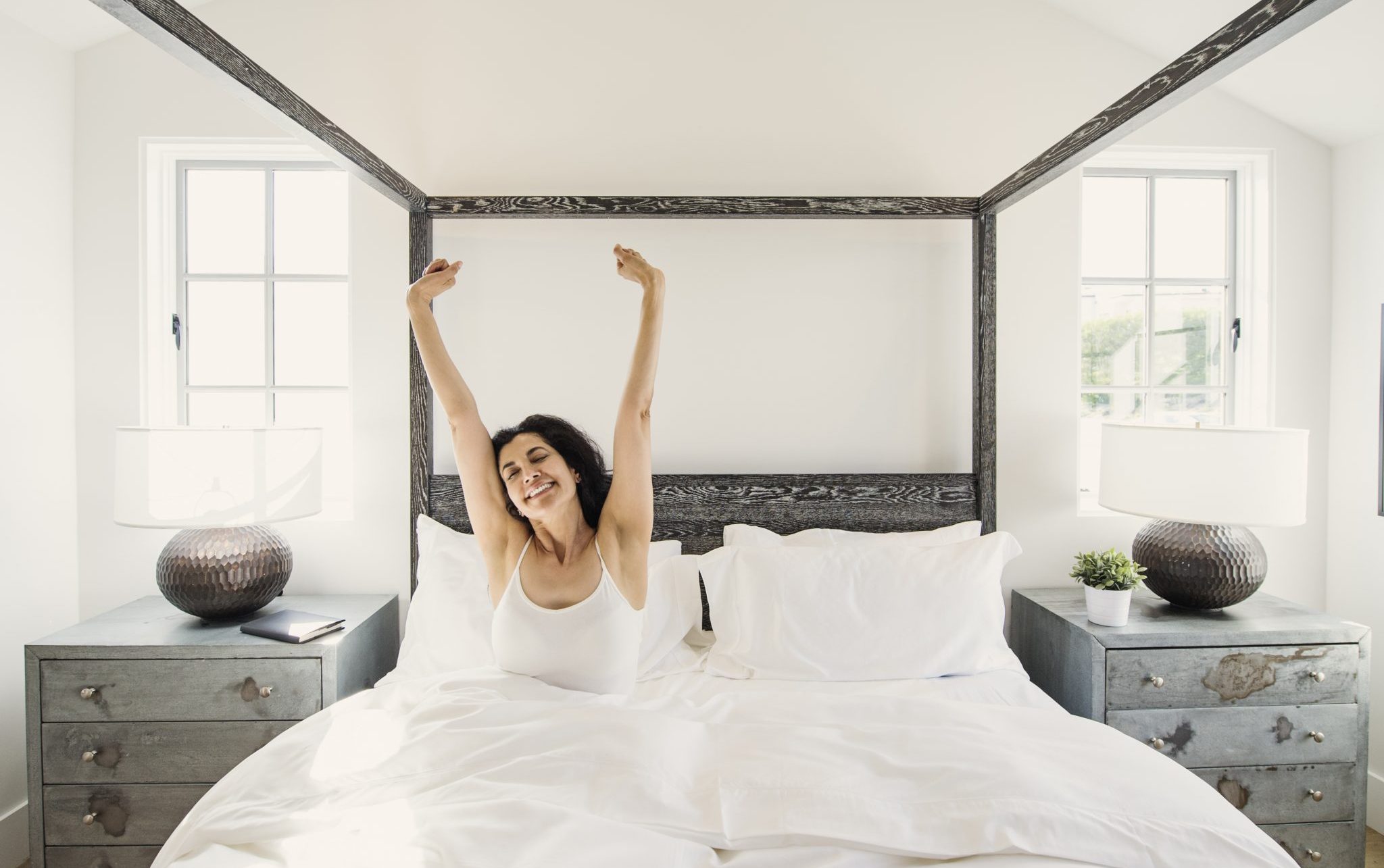Sleep is a fascinating process that is often taken for granted as we fail to take notice of the changes in our sleep routine.
Ask yourself this: Do you wake up in the middle of the night for no reason? Do you oversleep on a regular basis? Do you wake up after a long night of sleep not feeling rested at all? A ‘Yes’ to any of these questions speaks volumes about what your body might be going through.
Of course, it’s a no-brainer that getting enough z’s means feeling refreshed when you open your eyes in the morning and rarely feel snoozy during the day. But it’s not that simple.
If you’ve ever been wondering how to get rid of a bad and inconsistent bedtime schedule and fix your sleep cycle once and for all, this is what you need to check out first:
4 Signs that you need to reboot your sleep cycle:
1. You regularly fall asleep in under 5 minutes
Turns out falling asleep in a glimpse of a second is not a skill but rather a sign of overtiredness or maybe even depression.
2. You regularly struggle to fall and stay asleep
This is a common complaint coming from people suffering from anxiety and insomnia. It means they’re not getting enough quality sleep and feel drained of all their energy.
3. You regularly sleep 6 hours or less
Sleep problems can contribute to high levels of stress hormone, heart beat disorders and high blood pressure. Sleep debt is likely to lead to a weakened immune system.
4. You regularly sleep more than 9 hours
Sleeping too long is far from being a cure-all solution. People who tend to oversleep become less active and meet the all-time companions of too much sleep – headache and back pain.
Having said all this, making some simple changes to your bedtime routine can often make a big difference in your energy levels and well-being.
10 best ways to fix your sleep cycle:
1. Building a regular sleep pattern will help fix your body clock.
Get your body into a routine: go to bed and wake up around the same time each night and morning. Hold onto this routine even on weekends and you will see how it’s gradually becoming your habit.
2. Getting enough z’s means sleeping from 7 to 8 hours.
Both lack of the beauty sleep and oversleeping are almost equally harmful for your heart, brain, immune system as well as they are serious risk factors for health issues. Figure out your magic number and stick to it.
3. Give your mind a beacon to let it recognize your bedtime.
It may be a calming yoga practice or breathing exercises. Or maybe you love lighting an aroma lamp or reading a chapter of your book. Not anything too exhausting. The point here is to get rid of unpleasant thoughts and worries of the day and have you content and relaxed. Plus, with the help of certain rituals the mind will be set on sleep which helps form a sleep habit.
4. Carefully select colors for your bedroom.
Choose soothing cold colors for your bedroom furniture, wallpaper and bedding. They are much more suitable for a good night’s sleep since they reduce heartbeat and lower blood pressure.
5. Bedroom space matters the most.
Place your bed in front of a window and preferably in the center of the room and add more items that go together in pairs, like bed-side tables, same-shaped pictures etc. Choose in favor of natural materials and plants.
6. Take care of your bedroom temperature.
Air the room before you go to sleep. It’s a real challenge to fall asleep in a stuffy room. Your bedroom temperature should be at around 65 degrees Fahrenheit. If it’s too cold or too hot inside the room you might not feel so comfortable at night.
7. Cut down on napping during the day.
It’s important that you get enough sleep at night. If you don’t your body’s natural response will be craving afternoon naps. They are a perfect way to compensate for the lost sleep, but if you already are a trouble sleeper napping will make matters only worse.
8. Avoid bedtime meals, sugary foods and drinks, caffeine and smoking.
Coffee and nicotine are likely to delay your sleep and reduce its quality. And if you eat too much before going to bed you are less likely to wake up happily rested the morning after.
9. Use your bedroom for its intended purpose.
That is sleep, sex and bedtime rituals. Leave work and food intake out of it. Let it be a peaceful place where you can relax and unwind at the end of the day.
10. Electronic devices and healthy sleep simply don’t go together.
When you climb under your sheets don’t bring your tablet, cellphone and other gadgets along. The artificial light emitted by electronic devices makes it harder to fall and stay asleep.
Sleep is part and parcel of a healthy lifestyle and not a single human being can get away without it. If you start getting enough quality sleep you’ll improve your mental and physical health, as well as your emotional balance and productivity during the day.





